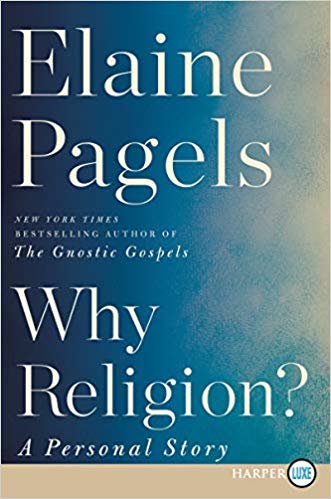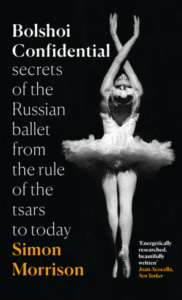Elaine Pagels “Why Religion?: A Personal Story”
Renowned Harrington Spear Paine Professor of Religion at Princeton University, Elaine Pagels Why Religion? is a moving memoir. It is not only an account on the devastating grief she experienced of losing her six-year-old son Mark and husband Heinz Pagels within a year of each other but also of her academic trajectory. A phenomenal academic Elaine Pagels is credited with groundbreaking work in Bible studies. She is one of the earliest scholars to have written on the discovery of the Gnostic gospels.

Why Religion is a memoir that is extremely moving particularly when she discusses the moments of intense pain and grief she experiences. And yet what is remarkable is how she pulls herself together as much as she is able to for the sake of her two younger children, even managing to complete the adoption process for her son David in the absence of Heinz, and making a career move to Princeton University.
She has been awarded some of the most prestigious grants — the Rockefeller, Guggenheim, and MacArthur Fellowships. And this for someone whose initial application to Harvard to do a PhD in the history of religion was rejected saying:
Ordinarily we would admit an applicant with your qualifications. However we are not able to offer a place in our doctoral program to a woman, since we have so many qualified applicants, and we are able to admit only seven to our doctoral program. In our experience, unfortunately, women students always have quit before completing the degree.
But the letter continued to say that if she was still “serious” about doing the course in the following year, the department would grant her admission. So she did.
Her interest in religion began after having visited a Billy Graham event when she was fifteen years old. She was a believer for about a year and a half but then quit it after losing one of her close friends, Paul, in a car accident. She bailed out of evangelical christianity after her friends came to offer their condolences but were unmoved about the incident after discovering Paul was a Jew and not a born again Christian and so he would be damned to hell. Elaine Pagels could not comprehend this as to her mind Jesus Christ was also a Jew.
There are many, many nuggets of wisdom she shares in her memoir. Never is she didactic in her tone but it gives much to think about. Given that she was the product of her times when women were being recognised as individuals in their own right and had much to contribute to society and of course academics, Pagels began questioning the very texts she was studying. Texts that she began to question as being a construct of their times imbued with patriarchy.
One of the earliest passages in the book is:
…the creation stories are old folk tales, they effectively communicate cultural values that taught us to “act like women”. Besides revealing how such traditions pressure us to act, these stories also taught us how to accept the role of women as “the second sex,” a phrase that Tertullian coined in the second century. The same Christian leaders whose scriptures censor feminine images of God campaigned to exclude women from positions of leadership, often hammering on the Bible’s divine sanction of men’s right to rule — views that most Christians have endorsed for thousands of years, and many still do.
This questioning spirit has kept her mentally agile. Consequently the body of work she has published has been pathbreaking not only for Bible studies but also how religious studies are meant to be viewed. She insists upon being a student of the history of cultures that uses faith as a tool to dissect and understand social structures through the ages. “Why Religion?” is also a critical question to be asked today when the world is increasingly polarised along communal lines, making this book even more relevant.
Here is a fascinating conversation with her recorded on 30 November 2018. Pagels is in conversation with Dr. Eric Motley, executive vice president at the Aspen Institute and author of the memoir Madison Park.
Why Religion? is a book that will move you irrespective of whether you are a Christian or not. This is meant to be read by all faiths and non-believers. It is meant for all readers — a fascinating testimony on a life well lived. A life that many folks, ordinary folks live — of living and believing in one’s faith and how these threads co-exist in one’s life, it is impossible to compartmentalise these aspects.
Read it.
3 Feb 2019
Further Reading:
Memories of Heinz Pagels by Jeremy Bernstein ( LRB, 3 January 2019)
“After her son and husband died, Elaine Pagels wondered why religion survives” by Ron Charles ( Washington Post, 6 November 2018)

